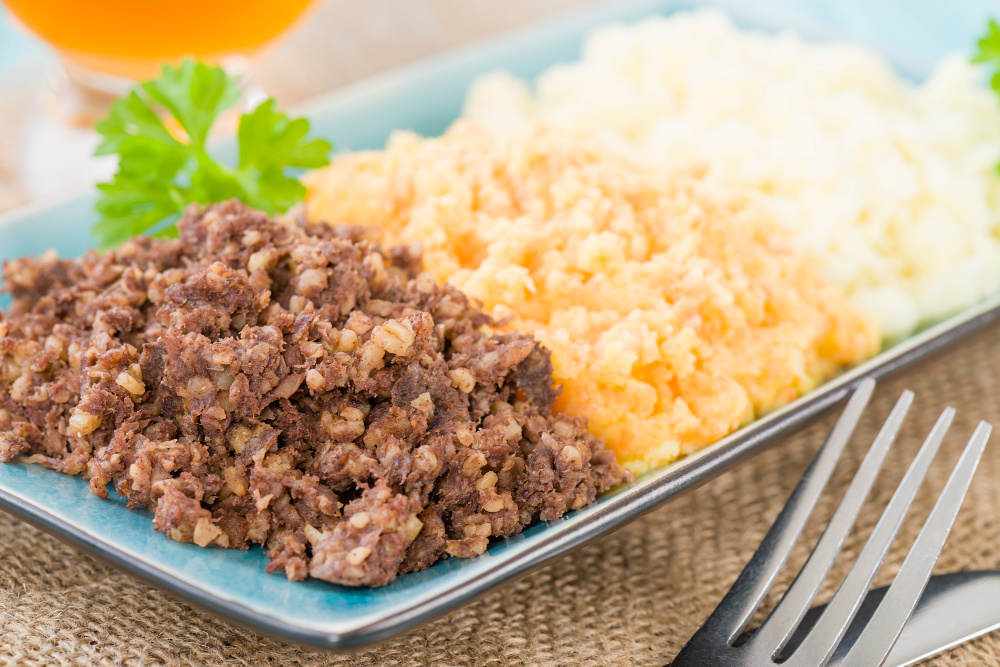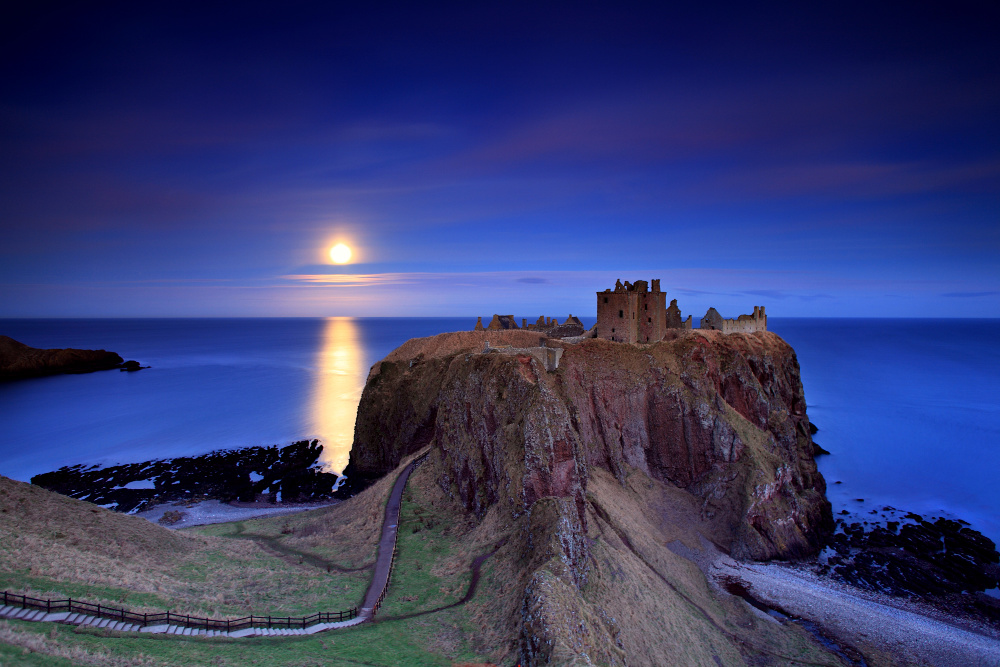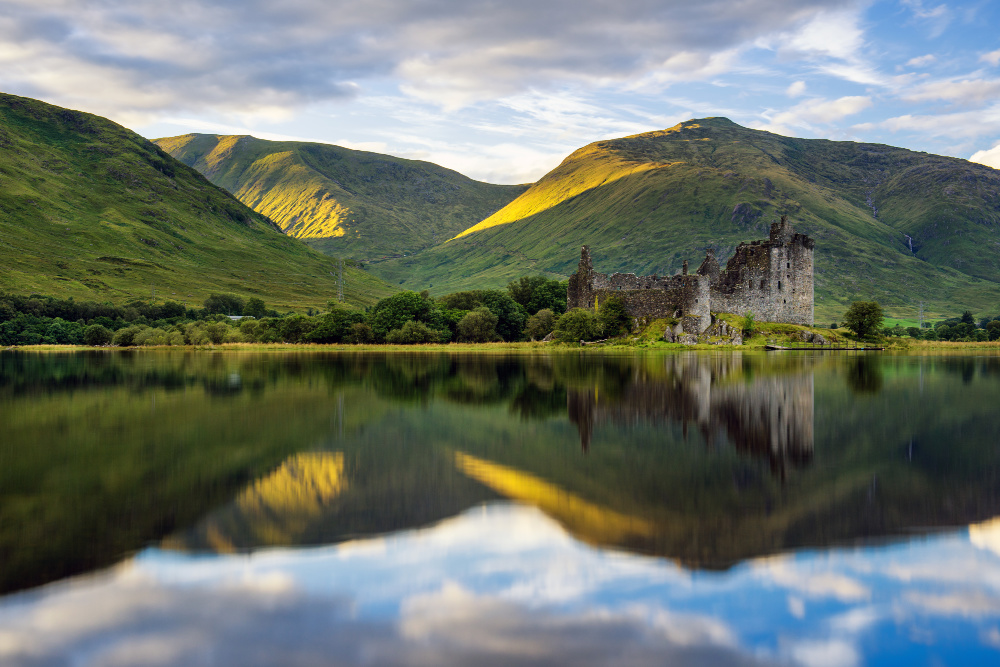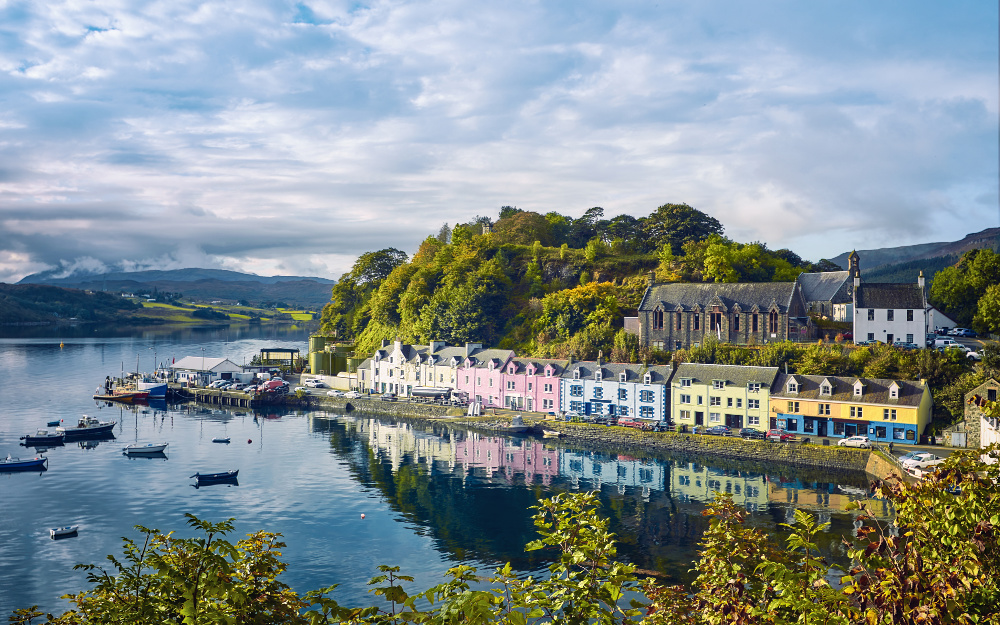3 bonny ways to celebrate St Andrew’s Day in Scotland

November 30 is St Andrew’s Day, and Scots all over the world will be celebrating their patron saint (who was actually born in Bethsaida, in Galilee – i.e nowhere near Scotland!).
So what else do we know about St Andrew? He was apparently (a) a fisherman, (b) one of Jesus Christ’s apostles and (c) was crucified as a martyr in Greece in 60 AD – but on an X-shaped cross, as he didn’t feel he was worthy to die on the same sort of cross as Jesus. These days, the X-shaped cross (a.k.a a saltire) is the symbol that makes up the Scottish flag.

St Andrew’s Day is the national day of Scotland and a grand excuse for them to celebrate – something they are very good at! Usually involving music, dance, food and drink, the events and festivities of St Andrew’s Day kicks off a winter festival season that also includes fire festivals, Hogmanay, Burns Night and Up Helly Aa.
Whether you’re a Scot or a Scot-at-heart, here are some fun things you can do in the land of the thistle to celebrate St Andrew’s Day:
Go to a cèilidh
https://www.instagram.com/p/BqF2146DBB_/?utm_source=ig_embed&utm_medium=loading&hidecaption
The word cèilidh (pronounced ‘KAY-lee’ not ‘sea-lid’!) means ‘gathering’ or ‘party’ in Gaelic. And that’s exactly what it is – a social event with folk music and singing, traditional dancing and storytelling. Once upon a time a cèilidh didn’t necessarily involve dancing, but these days it certainly does. Expect a live band playing traditional folk music and a caller who will let you know the steps and guide you through the dances. It’s kind of like a barn dance, but with Scottish-style dancing. And it’s heaps of fun. Forget fancy footwork – the only requirement is that you have a go and have a laugh (that’s the only way you can tell if you’re doing it right!).
Many places are hosting cèilidhs all around Scotland. If you’re in Edinburgh, check out the ones at Lauriston Hall (hosted by The Scottish Storytelling Centre) and The Jam House. You’ll also find free cèilidh dance lessons around the Scottish capital, as well as storytelling events and traditional music, markets selling food, drink and seasonal crafts, a humorous haggis hunt and the amazing Street of Light. Loads of places will also offer free admission, including Edinburgh Castle.
How to speak Scottish:
“I was reeking after a night oot on the skite.”
Translation: “I consumed an excessive amount of alcohol and was in a state of extreme intoxication after a night of fun festivities.”
Kilt up

Get dressed up for St Andrew’s Day in some traditional Scottish tartan. Gentlemen, if you want to go the whole hog, you’ll need to wear a kilt – a piece of tartan that originated in the Highlands and is worn around the waist – along with a sporran (a bag worn around the waist, over the kilt), a kilt pin (to hold the kilt together at the front) and a sgian dubh (pronounced skee-an doo – a small dagger that should be worn in your right sock). If you just want a touch of tartan, go for trousers, a tie or bow tie. Ladies, think a tartan dress or skirt, shoes or bag (think Vivienne Westwood), or you can wrap a traditional tartan plaid over your normal clothing.
If you’ve got strong Scottish heritage you probably already know your clan tartan. If not, find out on the Scottish Register of Tartans. No Scottish links, but you fancy making your own tartan? Many tartan companies will let you commission your own design, which you can then submit to the Scottish Register of Tartans for approval.
How to speak Scottish:
“It’s braw out – he’s a radge to drink an Irn-Bru in his kilt.”
Translation: “It’s a lovely day outside, but he is as mad as a hatter to drink this Scottish fizzy orange beverage while wearing his kilt.”
Read more: A wee dram, and lots of dramatic scenery: Scotland’s new whisky trail
Eat haggis

Let’s be honest: haggis looks disgusting. And when you hear it’s traditionally cooked in a sheep’s stomach, it’s even worse. The good news is that these days, most haggis has ditched the sheep’s stomach for synthetic sausage casing. And it’s actually delicious. It’s a type of savoury pudding that combines meat with oatmeal, onions, salt and spices. Similar in texture to stuffing, it’s earthy, rustic and spicy, with a nice kick of pepper! Haggis is Scotland’s national dish, so it’s really the only choice if you want to celebrate St Andrew’s Day with a traditional Scottish dinner. Try it with classic sides of bashed “neeps” (turnips) and mashed “tatties” (potatoes).
How to speak Scottish:
“Och, this haggis is well tidy scran.”
Translation: “This haggis is delicious food.”
Need a wee bit more inspiration to go to Scotland?
Fairy Pools on the Isle of Skye

Moonrise over Dunnottar Castle in Aberdeenshire

Kilchurn Castle on Loch Awe, in Argyll and Bute

Dugald Stewart Monument on Calton Hill in Edinburgh

Portree on the Isle of Skye









 Proudly Australian owned and operated
Proudly Australian owned and operated